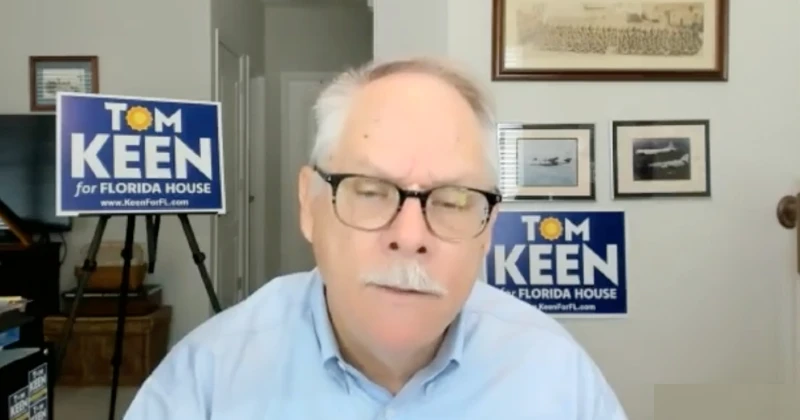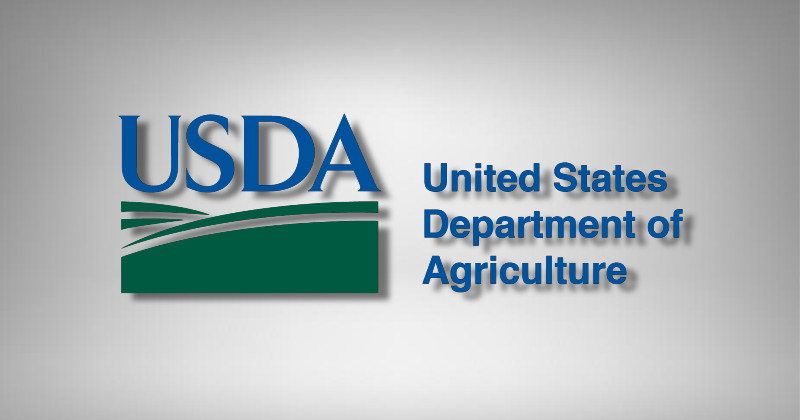Following last week’s announcement from the U.S. Department of Agriculture (USDA) on additional funding to support agricultural producers facing market disruptions and costs due to COVID-19, state Agriculture Commissioner Nikki Fried called all eligible Florida farmers to apply as soon as applications open on Monday, September 21 with the enrollment period running through December 11, 2020.
Up to an additional $14 billion has been designated for additional support through the Coronavirus Food Assistance Program (CFAP 2).
“With all of the challenges COVID-19 has caused for Florida farmers, including up to $522 million in crop losses just through April, we’re pleased to see the USDA commit additional funds to supporting our growers through these uncertain times,” said Fried. “CFAP 2 includes new payment structures and support for additional commodities that weren’t eligible in the first round of the program. I’m encouraging all agricultural producers whose businesses have been impacted by the pandemic to begin preparations and apply on Monday, September 21.”
CFAP 2 Updates: CFAP 2 brings expanded eligibility for a wide array of agricultural commodities. Most notable for Florida’s aquaculture industry is coverage of molluscan shellfish, a major Florida commodity, and that a sales-based approach will be used to calculate payments. These are two changes that FDACS advocated for in conversations with the USDA. This program has similar payment limitations as CFAP 1, but it’s important to note it’s a separate limitation applying to CFAP 2 payments specifically (not combined between CFAP 1 and CFAP 2).
Aquaculture Eligibility: Includes any species of aquatic organisms grown as food for human consumption, as feed for fish consumed by humans, and ornamental fish propagated and reared in an aquatic medium. Eligible aquaculture species must be raised by a commercial operator and in water in a controlled environment. This includes molluscan shellfish and seaweed previously covered under the U.S. Department of Commerce program. Eligible sales only include sales of raw commodities grown by the producer. CFAP 2 payments are available for eligible producers of aquaculture commodities, which are categorized as sales commodities. For full details, visit Farmers.gov/CFAP/Aquaculture.
Background: The USDA will use funds from the Commodity Credit Corporation (CCC) Charter Act and CARES Act to support row crops, livestock, specialty crops, dairy, aquaculture, and many additional commodities. USDA has incorporated improvements in CFAP 2 based from stakeholder engagement and public feedback to better meet the needs of impacted producers. CFAP 2 payments will be made for three categories of commodities: Price Trigger Commodities, Flat-rate Crops and Sales Commodities.
Price Trigger Commodities: These meet a minimum 5-percent price decline over a specified period of time. Eligible crops include: barley, corn, sorghum, soybeans, sunflowers, upland cotton, and all classes of wheat. Payments will be based on 2020 planted acres of the crop, excluding prevented planting and experimental acres. For broilers and eggs, payments will be based on 75 percent of the producers’ 2019 production. Dairy (cow’s milk) payments will be based on actual milk production from April 1 to Aug. 31, 2020. The milk production for Sept. 1, 2020, to Dec. 31, 2020, will be estimated by FSA. Eligible beef cattle, hogs and pigs, and lambs and sheep payments will be based on the maximum owned inventory of eligible livestock, excluding breeding stock, on a date selected by the producer, between Apr. 16, 2020, and Aug. 31, 2020.
Flat-rate Crops: Crops that either do not meet the 5-percent price decline trigger or do not have data available to calculate a price change will have payments calculated based on eligible 2020 acres multiplied by $15 per acre. These crops include alfalfa, extra long staple (ELS) cotton, oats, peanuts, rice, hemp, millet, mustard, safflower, sesame, triticale, rapeseed, and several others.
Sales Commodities: This includes: specialty crops; aquaculture; nursery crops and floriculture; other commodities not included in the price trigger and flat-rate categories, including tobacco; goat milk; mink (including pelts); mohair; wool; and other livestock (excluding breeding stock) not included under the price trigger category that were grown for food, fiber, fur, or feathers. Payment calculations will use a sales-based approach, where producers are paid based on five payment gradations associated with their 2019 sales.
A complete list of eligible commodities, payment rates and calculations, and full details of the program can be found on Farmers.gov/CFAP.
Eligibility: There is a payment limitation of $250,000 per person or entity for all commodities combined.
The total amount of 2 payments made to a legal entity – such as to a corporation, limited liability corporation, limited partnership, trust, or estate – is $250,000 except if:
Two different members of the legal entity each provide at least 400 hours of active personal labor, active personal management, or combination thereof with respect to the production of 2020 commodities, then an entity may receive up to $500,000.
Three different members of the legal entity each provide at least 400 hours of active personal labor, active personal management, or combination thereof with respect to the production of 2020 commodities, then an entity may receive up to $750,000.
In addition, this special payment limitation provision has been expanded to include trusts and estates for both CFAP 1 and 2. Producers will also have to certify they meet the Adjusted Gross Income limitation of $900,000 unless at least 75 percent or more of their income is derived from farming, ranching, or forestry-related activities. Producers must also be in compliance with Highly Erodible Land and Wetland Conservation provisions.
Apply on Monday, September 21: Producers can apply on Monday, September 21, 2020. Applications will be accepted through Dec. 11, 2020. Full details and application forms can be found at Farmers.gov/CFAP and other eligibility forms, such as those related to adjusted gross income and payment information, can be downloaded from Farmers.gov/CFAP/Apply. For existing FSA customers, including those who participated in CFAP 1, many documents are likely already on file. Producers should check with FSA county office to see if any of the forms need to be updated. Customers seeking one-on-one support with the CFAP 2 application process can call 877-508-8364 to speak directly with a USDA employee ready to offer assistance. This is a recommended first step before a producer engages with the team at the FSA county office.












